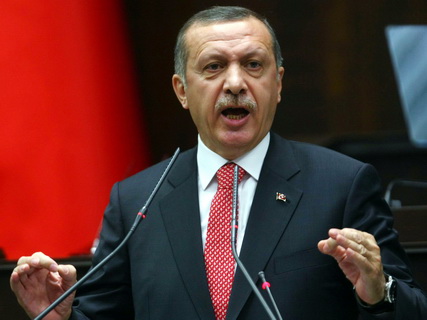Egyptian foreign minister Sameh Shoukry spoke with US media Monday, criticising the portrayal of Egypt’s human rights record and the lack of support the country has received as it fights extra-state militants that have caused regional instability.
Shoukry, currently on a three-day visit to the United States, told Foreign Policy that other governments took advantage of the terrorist attacks in Egypt to level criticism against Egypt’s security rather than showing support to the country.
Shoukry stated that nearly four million Egyptian have lost their jobs in the tourism sector which is suffering amid the ongoing terror attacks.
International concern over security in Egypt increased after the downing of the Russian A321 plane over Sinai in October.
“When we have seen terror operations in other areas, there was a rush to solidarity. You would have thought that similar solidarity would have been shown to Egypt, especially as it goes through a very difficult stage,” Shoukry said to Foreign Policy.
Regarding the human rights situation in Egypt, Shoukry impugned Western criticism of the Egyptian government’s arrests of dozens of journalists and tens of thousands of political opponents.
Human Rights Watch’s (HRW) annual report on Egypt for 2015 included claims that at least 3,000 people were charged or sentenced before military courts. Kenneth Roth, the executive director of HRW, has claimed that Egypt has detained over 40,000 political prisoners.
The HRW annual report inclusive report detailed the situation on a number of issues, including armed groups and counter-terrorism, security force abuses, accountability, arrests, mass death sentences, freedom of association, expression, assembly and religion, women’s rights, LGTB rights and refugees, asylum seekers, and migrants.
Shoukry described those numbers as a lie.
“Are we to return to the ideologies and the practices of Goebbels, where he says that if you repeat a lie sufficiently it becomes a truth?” he asked, referring to the famed Nazi minister of propaganda.
Shoukry also addressed the possibility of military intervention in the Libyan crisis in another interview. In comments to the Washington Post, he said that the West should not rush to intervene in Libya until a national unity government is formed.
“The Libyan people should undertake the decisions related to the fight against terrorism and how it should be conducted and what form of assistance should be provided to it. This should be a Libyan-led process defined by the Libyan people,” said Shoukry.
The international community became concerned about the spread of terrorism in Libya after “Islamic State” (IS) made significant territorial gains in the North African country. IS forces now control three Libyan cities: Derna, Sirte, and Subratha.
Recent clashes between the Libyan Army of the Tobruk government and the militant group have taken place against the backdrop of Libyan oil facilities in Al-Sedra and Ras Lanuf, a crucial revenue source for the political factions vying for control of the country. In January, IS seized the city of Beni Jawad, near Al Sedra and Ras Lanuf.
Reuters reported that the White House is considering military intervention in the region, including airstrikes, the deployment of US special operations forces, and the training of Libyan security forces.
During a meeting in Rome last week, the US secretary of state, John Kerry, urged both governments in Libya to accelerate the political process to form a unity government.
Shoukry believes that Khalifa Hafter, who is the leader of the armed forces loyal to the Tobruk parliament, should take a leading role in the fight against IS.
“We have to recognize that [Haftar’s forces] are an important component. . . in the battle against expansion of the terrorists,” Shoukry told the Washington post.



